Lobo
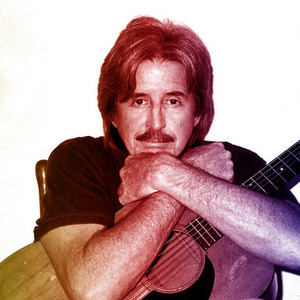
- Genre:
- Pop/Rock
- Styles:
- AM Pop, Contemporary Pop/Rock, Soft Rock
Lobo (born Roland Kent Lavoie, July 31, 1943), is an American singer-songwriter who was successful in the early 1970s, scoring several Top 10 hits, including "Me and You and a Dog Named Boo," "I'd Love You to Want Me" and "Don't Expect Me To Be Your Friend." Lobo's songs have been characterized by their sweet melodies, sumptuous instrumentation and soulful lyrics. This has made him well known outside the Western world, including Africa, India and Southeast Asia.
Born in Tallahassee, Florida, Lavoie was raised by his mother in Winter Haven, Florida with his six siblings. He began his musical career in 1961 as a member of a local band, The Rumours. The band included Gram Parsons and Jim Stafford, as well as drummer Jon Corneal, who later joined Parsons' International Submarine Band.
In 1964, while attending the University of South Florida, Lavoie joined a band called the Sugar Beats and met producer Phil Gernhard. He recorded a regional hit for the band, a cover of Johnny Rivers' song, "What Am I Doing Here".
During the 1960s, Lavoie performed with many other bands, including US Male, The Uglies, and Me and the Other Guys. It was in the latter band that he met musician Billy Aerts, who became a member of Lobo's touring band in the early 1970s and produced Lobo's comeback album in 1989.
Again working with Gernhard, his first solo record was released in 1969, the single "Happy Days In New York City" backed with "My Friend Is Here". Both were original tracks. It was released on Laurie Records.
By 1971, Lavoie had started calling himself Lobo (Spanish for wolf). Gernhard was an executive for Big Tree Records, and the company released his first single, "Me and You and a Dog Named Boo". The first major hit for the label, it reached number 5 in the US and launched a successful series of singles. The song also reached number 4 in the UK.
His debut album, Introducing Lobo, followed that May. In June his second single, "She Didn't Do Magic", was released. In September, "California Kid And Reemo" was released. Another single was The Albatross. It was around this time that Big Tree Records was merged with Bell Records. In the confusion, Lobo's second album Close Up was lost and never released.
Maintaining the Lobo alias, he released Of a Simple Man in 1972, which yielded back-to-back Top 10 hits, including "Don't Expect Me To Be Your Friend", which reached #8 in the US charts, and "I'd Love You to Want Me". "I'd Love You To Want Me" was Lobo's biggest hit, climbing to #2 on the Billboard charts in 1972, and later reached #1 in Germany and in mid-1974, #5 in the United Kingdom.
With the release of Calumet in 1973, Lobo had three more Top 40 hits: "It Sure Took a Long, Long Time," "How Can I Tell Her" and "Standing at the End of the Line." He made an appearance on American Bandstand that year and also released a fourth single from Calumet, "There Ain't No Way." A fifth, "Standing At The End Of The Line" was released in 1975.
In June 1974 Lobo's fourth album Just A Singer. It was the first album by Lobo to contain tracks not written by Lobo. The only single from the album was "Rings".
His last Top 30 single for Big Tree, "Don't Tell Me Goodnight", was released in 1975. Lobo also released the album, A Cowboy Afraid Of Horses and his last single for Big Tree, "Would I Still Have You", was released. The label followed up with a compilation that year, "The Best Of Lobo".
In 1976, Lobo started to break from Big Tree and Phil Gernhard, releasing the album Come With Me in Europe on the Philips label. "At First Sight" was the single. Neither were released in US.
1977 Lobo signed with Curb Records in 1977 and released the single "Afterglow", which was co-produced by Lobo and Gernhard. Another single, "You Are All I Ever Need" was released in 1978. It was last single to have Gernhard as producer.
In 1979, Lobo resurfaced on MCA Records, where he was paired with producer Bob Montgomery and released the single "Where Were You When I Was Falling In Love", which reached #23. He also released his first US album in four years, Lobo. Other singles for Curb were "Holding On For Dear Love", "With A Love Like Ours" and "Fight Fire With Fire".
Dissatisfied with the production of his records, Lobo sought a release from his Curb contract. He moved to Nashville and in 1981 he started his own label, Lobo Records, and released several singles including "I Don't Want To Want You", written by his brother, Roger Lavoie, "Come Looking For Me" and "Living My Life Without You". All making the country charts.
NOTE: The 1981 Disco Single by LOBO - "The Caribbean Disco Show" (Mercury - 1981) is not the same person as this Lobo.
Lobo Records became Evergreen Records in 1985. It released two singles, "Am I Going Crazy" and "Paint The Town Blue", a duet with Robin Lee.
Meanwhile, Lobo's popularity was growing in Asia, fanned by the release of his greatest hits compilations in 1987 and 1988.
In 1989, Lobo released his first new album in 10 years, Am I Going Crazy, made in Taiwan on UFO/WEA records and produced by Billy Aerts.
With his popularity in Asia sustained by the reissue of all his albums on CD, he signed a multi-album deal with PonyCanyon Records in Singapore, releasing Asian Moon (repackaging of tracks from Am I Going Crazy along with newly recorded tracks) in 1994, Classic Hits (re-recorded Lobo hits and some cover versions other artists' hits) in 1995 and in 1996 Sometimes (all new original songs). On another Asian label, Springroll Entertainment, he released You Must Remember This in 1997, an album of pop standards that was released in two formats, one with vocals and the other with instrumental tracks.
The East Asian financial crisis in 1997 drove his record labels out of business and Lobo retired to his home in Florida.
Retirement was short-lived, however, as in 2000 Lobo signed with a German record company, Gmbh Entertainment, and recorded a few tracks for various Hits CD's. He also co-wrote two Christmas songs with Billy Aerts, "A Big Kid's Christmas" and "Late Christmas Eve", which have been released on various Christmas compilations from 2000 to present.
Singles recorded during this period include "Caribbean Disco Show", "Let It Be Me", "Who'll Stop The Rain" and "Different Drum". These were all available on different "Greatest Hits" releases.
His popularity in Asia is having a resurgence, and in 2006 he toured in Southeast Asia.
Strangely, his music has been sampled by Melbourne experimental band Kooties, although they paid little respect to Lobo's original intentions.
In 2008 Lobo released his first new album in over 10 years. Out of Time features some new songs as well as the old favorites. Out of Time represents a step back to the original era of these recordings, revisiting his old songs the same way he wrote them; by doing all the instruments himself, they are Out of Time. It refers to the classic nature of the old songs, how they are still favorites, even though they don't follow the norm of today's songs.
- Sort by
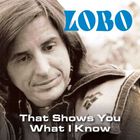
That Shows You What I Know
- Year:
- 2022
- Tracks:
- 12
- Bitrate:
- 320 kbps
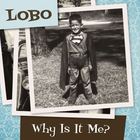
Why Is It Me
- Year:
- 2022
- Tracks:
- 11
- Bitrate:
- 320 kbps
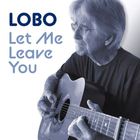
Let Me Leave You
- Year:
- 2022
- Tracks:
- 12
- Bitrate:
- 320 kbps
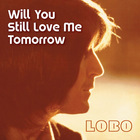
Will You Still Love Me Tomorrow (EP)
- Year:
- 2021
- Tracks:
- 6
- Bitrate:
- 320 kbps

If I Could Do It Over The Acoustic Hits
- Year:
- 2021
- Tracks:
- 15
- Bitrate:
- 320 kbps
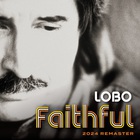
Faithful (Remastered 2024)
- Year:
- 2021
- Tracks:
- 13
- Bitrate:
- 320 kbps
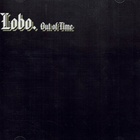
Out Of Time
- Year:
- 2008
- Tracks:
- 15
- Bitrate:
- 320 kbps
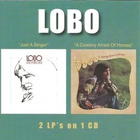
Just A Singer / A Cowboy Afraid Of Horses
- Year:
- 2008
- Tracks:
- 22
- Bitrate:
- 320 kbps
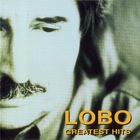
Greatest Hits
- Year:
- 2007
- Tracks:
- 10
- Bitrate:
- 320 kbps
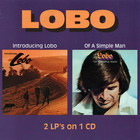
Introducing Lobo / Of A Simple Man
- Year:
- 2005
- Tracks:
- 23
- Bitrate:
- 320 kbps
 England Dan & John Ford Coley
England Dan & John Ford Coley  SAILCAT
SAILCAT  Mike Curb Congregation
Mike Curb Congregation  Albert Hammond
Albert Hammond  Climax
Climax  Gilbert O'sullivan
Gilbert O'sullivan  Seals & Crofts
Seals & Crofts  Mac Davis
Mac Davis